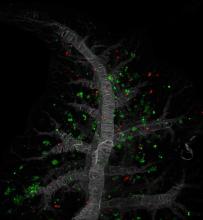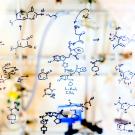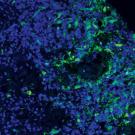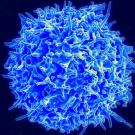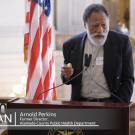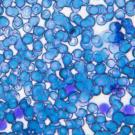News
UCSF Researchers Uncover New Pathway for Molecular Cancer Drug Therapies
A fundamental challenge in drug development is the balance between optimizing a drug’s lock-and-key fit with its target and the drug’s ability to make its way across the cellular membrane and access that target. The search for cell-permeable drugs has conventionally focused on low-molecular weight
Rethinking How Cancer Cells Evade Targeted Therapy
Glioblastomas (GBMs) are incurable brain tumors with a prognosis of about one-and-a half years on average. They are highly resistant to treatment and have defied all attempts at precision therapy. In their study published December 20 in Nature Cancer, first author Lin Wang, PhD and senior author
Killing Pancreatic Cancer with T Cells that Supercharge Themselves
Scientists at UC San Francisco (UCSF) have engineered T-cells to produce a potent anti-cancer cytokine, but only when they encounter tumor cells. The immunotherapy eliminated melanoma and pancreatic cancer in mice without major side effects, and it offers a promising new strategy for fighting these
Community Advisory Board Leader Arnold Perkins Retires
“I can’t tolerate injustice, and I will not be silent.” -Arnold Perkins This month, after 17 years participating on – and nine years leading – the Cancer Center’s Community Advisory Board (CAB), Arnold Perkins retired. Perkins, 80, former director of the Alameda County Department of Health, was a
International Hematologic Conference Features UCSF Health Experts
Hematologists and oncologists from around the world will present new research and clinical findings at the American Society of Hematology’s (ASH) 64th Annual Meeting and Exposition. This year’s meeting will be held in New Orleans from Dec. 10-13, 2022. Widely considered the world’s leading event in
How AI Found the Words to Kill Cancer Cells
Using new machine learning techniques, researchers at UC San Francisco, in collaboration with a team at IBM Research, have developed a virtual molecular library of thousands of “command sentences” for cells, based on combinations of “words” that guided engineered immune cells to seek out and


